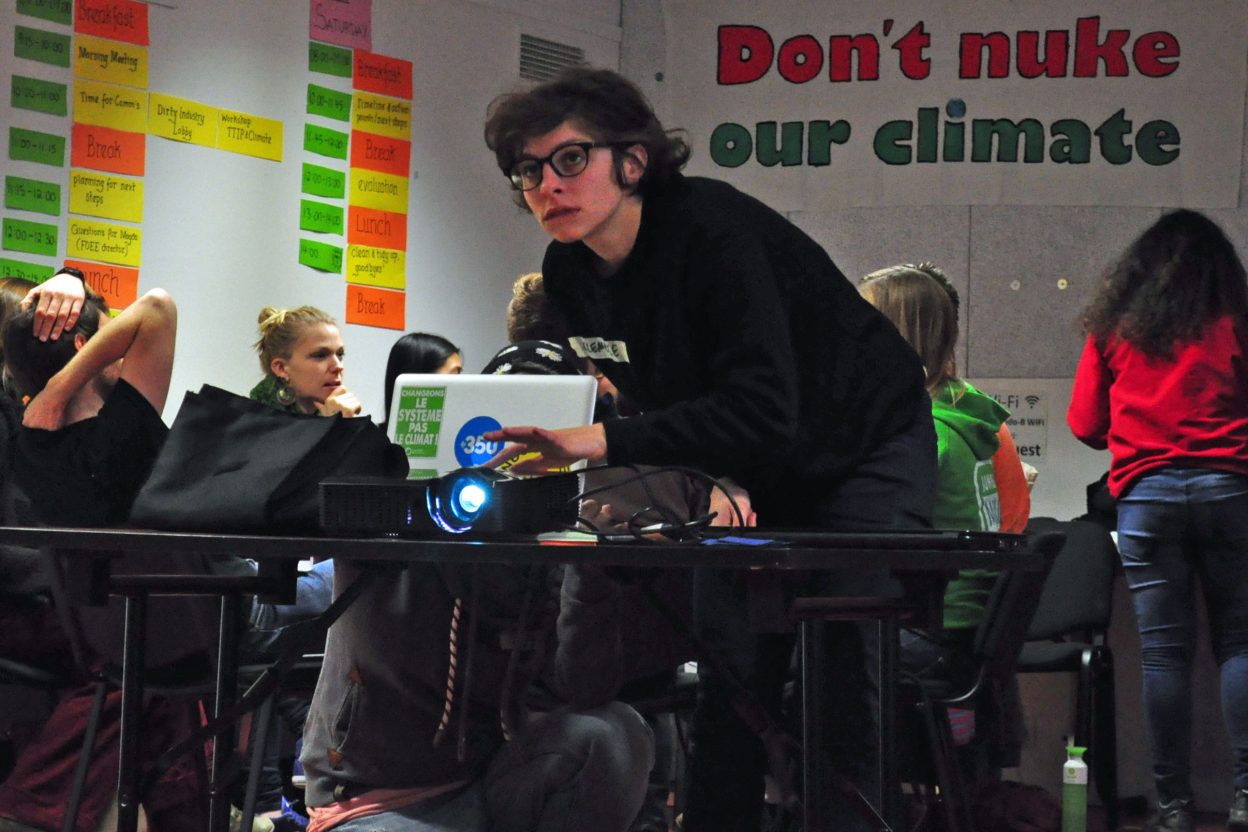by Jamie and Clémence
To launch Lima in Brussels, we decided to start with the basics: a discussion on climate justice.
In a nutshell, climate justice is a notion (and movement) that aims to link social justice issues with the climate crisis. The climate justice movement questions and deconstructs the main narrative – that the EU is the most committed and ambitious group of countries in the UN, and that developing countries are reluctant to initiate the transition, using development rights as an excuse to keep polluting for decades to come.
‘Climate justice’ gives a fuller and truer picture:
- developed countries are not owning up to their historical responsibility in the climate crisis (it’s estimated they’re responsible for about 80% of historical greenhouse gas emissions)
- furthermore, developed countries have profited from our current economic model based on growth and extraction for 150 years.
- rich countries are the least vulnerable to the first and worst impacts of climate change
- developed countries refuse to finance and compensate countries from the Global South, which are hardest hit by climate change.
Climate justice requires a just transition, based on what science and equity demand.
Climate justice also sheds light on the numerous false solutions to climate change (often brought forth by the Global North) biofuels, GMOs, nuclear power, CCS… badly disguised business opportunities in short.
To reflect on these issues, we prepared a climate justice quiz. The group was divided into five teams, representing five continents. The questions covered climate science and policies, and correct answers were awarded with points.
In the beginning, the rules were fair and all teams treated equally. However, one of the principles of the game was to mirror the numerous injustices happening in the UN climate talks. The Global North is known to use its influence and power to dominate the discussion and force countries from the Global South into watered-down deals minimising their responsability. To reflect on this unleveled playing field, we gradually started awarding more points to the Global North and arbitrarily taking points away from Asia, Africa and Latin America.
After two rounds, however, the game took an unexpected turn. Latin America and Africa decided they had had enough, and announced they would boycott the game until justice was served.
Everyone burst into laughter, and we decided to see what would happen, suggesting ways to move forward. Latin-America and Africa demanded points from the Global North: Europe and North America. As the situation was completely blocked and the Global South united forces, they were both forced by the group to give in and return the points.
The game gradually became a UNFCCC round of negotiations – with rich countries attempting to divide and rule, and suggesting loans to the Global South countries, which always refused them. “We don’t want your loans, we want emissions reductions now!” At the end of the game, the three continents were displaying such unity Europe decided to divide all of its points between them.
For us, it was the first time the climate justice game had shifted in this way: it was completely unscripted, and mirrored almost perfectly real-life scenes from the UN annual climate talks. It was a great way to start our week of mobilisation!

